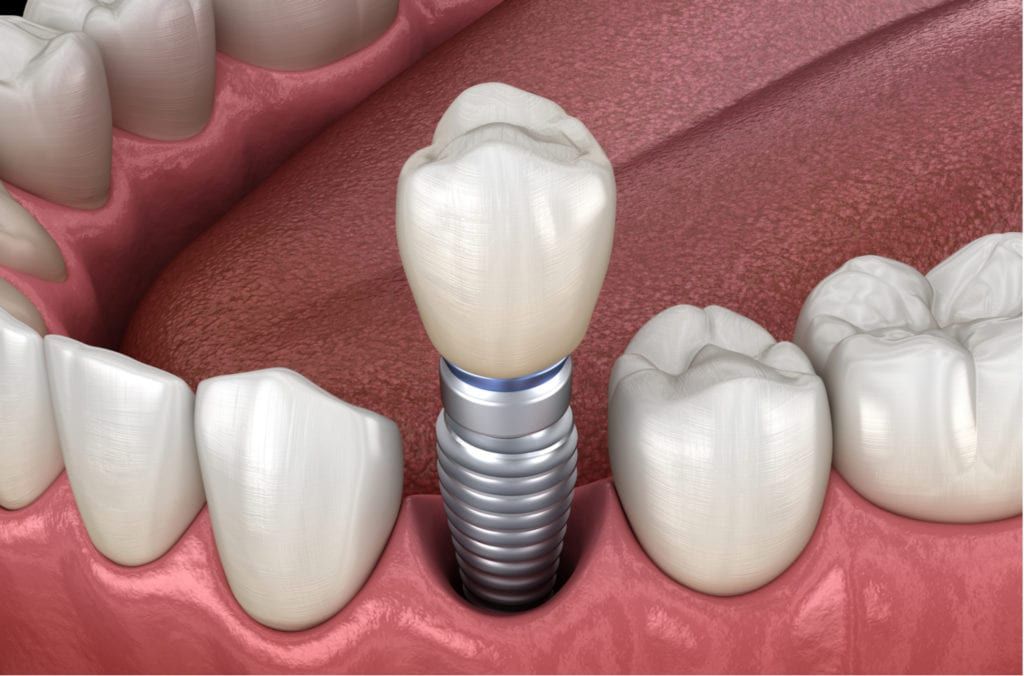Dental Implants are an excellent way to replace missing teeth and correct potential bite and jaw joint problems from teeth shifting to fill the space. Implants can combat the “sunken face” look associated with missing teeth and can even improve chewing ability. They are also a terrific option for those who desire a more permanent solution than dentures.
The Solution:
A dental implant is an appliance used to replace the roots of teeth. The implant is surgically attached to the jaw bone and an artificial tooth is attached to the top of the implant, creating a natural looking, undetectable replacement for the missing tooth. In the event that more than one tooth is missing, several implants may provide a base for a series of artificial teeth known as a fixed bridge (see bridges). Implants can even be used to secure a full set of removable dentures for people who have no remaining natural teeth. This can greatly improve chewing ability. It generally takes about six months for the surgical implant to heal before the final restoration can be completed.
Advantages:
Dental implants with artificial teeth are the closest thing to regrowing your natural teeth. They are strong, stable, durable and virtually undetectable. By filling gaps left by missing teeth, implants can provide better chewing ability and head off jaw joint problems. They are far superior to removable dentures.
Disadvantages:
Dental implants are excellent, state-of-the-art restorations and have few disadvantages when compared to alternatives such as dentures. However, dental implants do require surgery and time to heal, and they are initially more expensive than dentures or fixed bridges. These disadvantages are offset by the ease of use, saved time and long term health benefits of implants.
Alternatives:
Dentures are a poor alternative to dental implants. However, in some cases, where finances are a primary concern, dentures are the only alternative.


